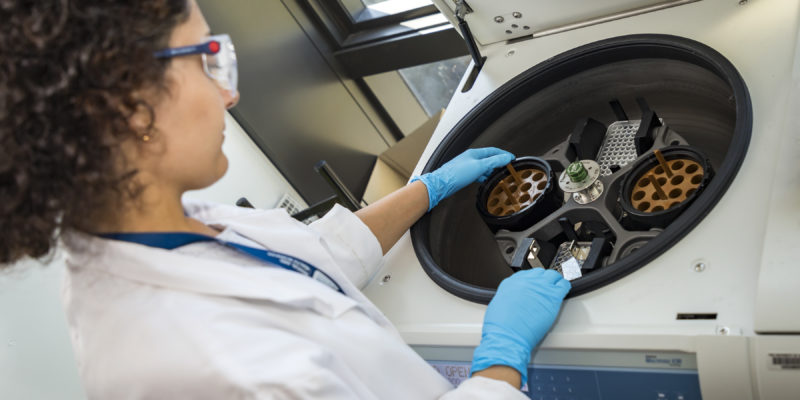


Earlier this year, the gene panel developed by the Leukaemia & Blood Cancer New Zealand Research Unit (LBCRU) for testing acute myeloid leukaemia (AML) patient samples became available to cancer clinicians in Auckland. Now all adult patients with newly diagnosed and relapsed AML have samples collected for DNA preparation and analysis using this 70-gene myeloid panel.
HK, a man aged 57, was diagnosed with AML in August 2015. Molecular studies showed that his leukaemia cells had two abnormal genes: the NPM1 mutation and the FLT3 ITD mutation. The second carries a high risk of relapse so, in addition to chemotherapy, this is usually addressed with a bone marrow transplant.
But transplants are risky. The LBCRU estimates that between 15 and 20 percent of patients are at risk of dying in the first year from complications. It also commits the patient, family and caregivers to four weeks in hospital and two months of follow up care. It’s usually a year before they resume a normal life.
As HK was in remission after the first of four treatments, instead of going straight to a transplant, his blood and bone marrow were re-tested at the LBCRU using a super-sensitive new test at three-monthly intervals. Using the NPM1 marker, which is seen in about 30 percent of AML cases, the team’s new molecular test can find one leukaemia cell in 100,000 normal cells.
Every test after treatment was negative. Clinicians say HK is probably cured. However, if the tests had turned positive, a transplant could have been arranged before a relapse without the need for further chemo or radiotherapy.
HK’s good news story will soon be that of many New Zealanders living with blood cancers thanks to this new molecular test for a common leukaemia.